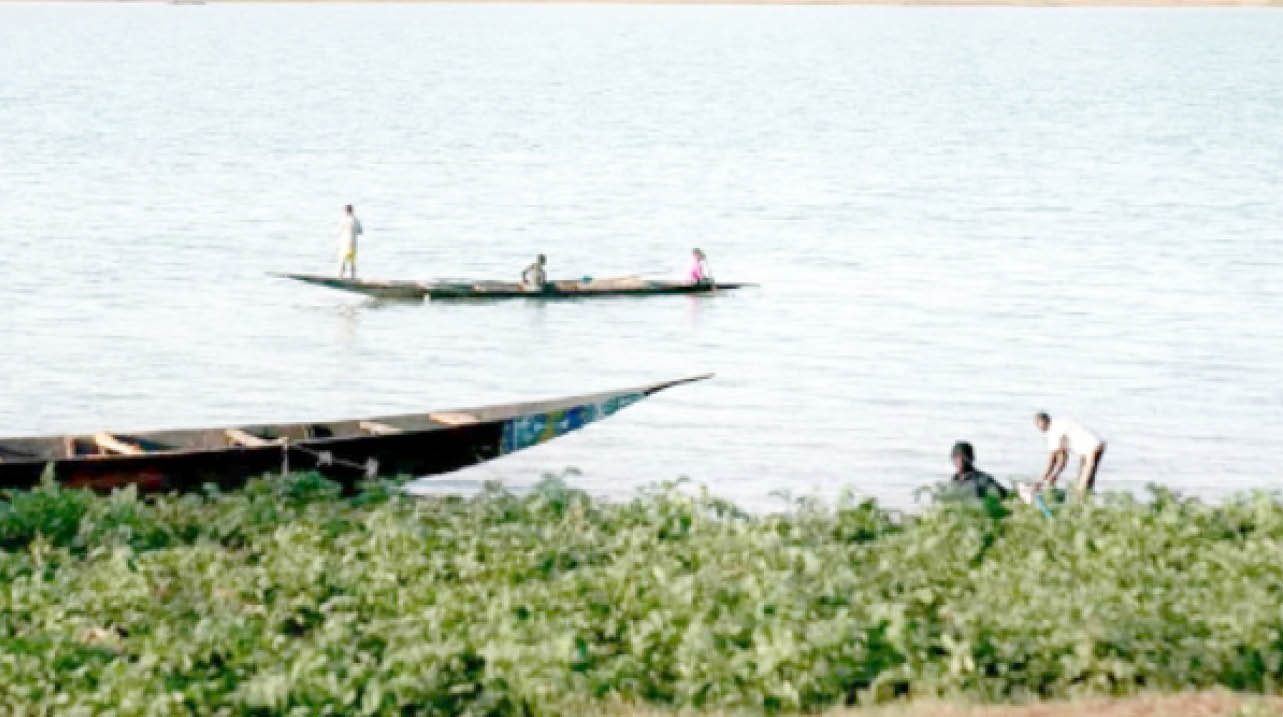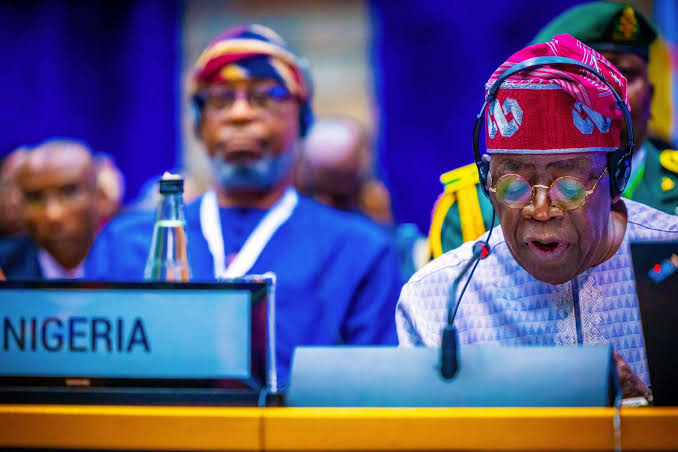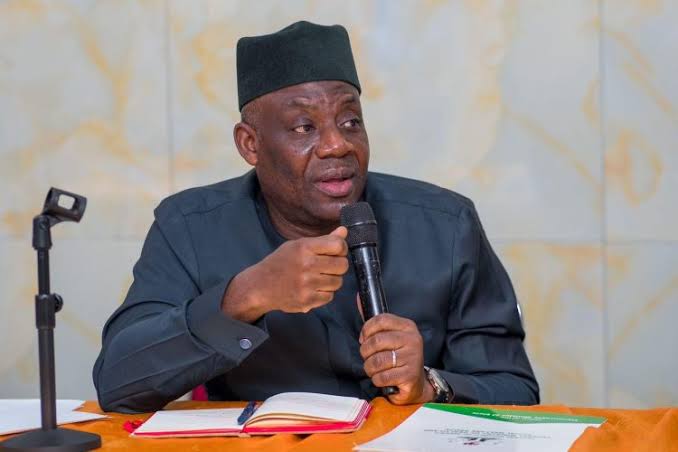Amidst the rising transportation cost after the removal of fuel subsidy, waterways across the country, which would have provided a veritable alternative for the movement of people and goods from one point to another, have been abandoned, findings by Daily Trust on Saturday have shown.
Although no fewer than 28 states are in the waterway transportation map, only few of them are taking advantage of the potential in water as an alternative means of resolving the mobility challenges triggered by hike in transportation cost after the removal of subsidy.
Experts said Nigerians stood to gain a lot through water transportation, and called on the federal and state governments to harness it to the fullest.
They said a well-managed inland waterway would enable people travel from Lagos to as far as Taraba State with ease, even as heavy luggage would also be transported at less cost, a development that would equally reduce road accidents and increase the lifespan of highways.
At present, most of what obtains across the states is the use of crude methods to transport people and goods.
While travelling by road has led to the death of thousands of people, the water transportation sector is equally wreaking havoc because it is not being managed well.
Currently, a litre of petrol costs between N568 and N617, a hike from N189 in May 30, 2023 when subsidy was finally removed, leaving the price of the product to be determined by market forces.
Consequently, many Nigerians across states of the federation have abandoned their vehicles owing to the inability to afford the now humongous cost of fuelling.
Again, many people now resort to trekking long distances on major routes across the states due to the hike in transportation fares.
But the Nigerian Inland Waterway Authority (NIWA) said it was doing everything possible to encourage water transportation through the provision of jetties and other infrastructure across its area offices.
Nigeria is blessed with abundant waterways which could have been leveraged to manage the present challenges thrown on the citizens by the removal of fuel subsidy.
According to the NIWA, the country’s resource base of waterways spans 10,000 kilometres, with about 3,800 kilometres of them “navigable seasonally.”
Twenty-eight of Nigeria’s 36 states can be accessed through water, and the country can link five of its neighbouring countries – Benin Republic (Port Novo), Equatorial Guinea, Cameroon, Chad and Niger Republic – by water, according to the NIWA.
Rivers Niger and Benue constitute the major channels for inland navigation, which include but not limited to Cross River; Port Novo-Badagry-Lagos waterways; Lekki and Lagos Lagoons; Ogun-Ondo waterways; Benin river, Escravos channel; Nun river; Imo river, Orashi river, Ethiope river Ugwuta lake, Lake Chad and numerous creeks in the Niger Delta.
States in the Niger Delta, for instance, have unspecified sizes of waterways, which the states are still struggling to utilise.
In the case of Lagos, the state has a sparse landmass estimated to be about 0.4 per cent of the entire Nigerian landmass and the massive waterways.
At the moment, only Lagos State has some investments in the waterway, opening up access to different parts of the state through 34 routes managed by the Lagos State Waterways Authority (LASWA), which confirmed that one million Lagosians now use the waterways on a monthly basis.
The general manager of the LASWA, Oluwadamilola Emmanuel, told Daily Trust Saturday that his authority had 20 boats in its fleet, which cover 10 major routes on the waterways.
“The 20 boats on the Lagos ferry services fleet go as many as 10 major routes on the waterways. They go from Ijede to Badore, Ikorodu to Falomo, Badore to Falomo, Ojo to Marina, Mile 2 to Marina, Badagry to Marina. We also have tourist services to Ilashe and Igbeshe,” he said in a chat with Daily Trust Saturday.
Untapped potential
In Kwara State, although there are several water routes along Asa, Patigi and Edu local government areas, only the last two, which connect with River Niger, are busy corridors for inter and intra state transport, aside fishing and farming activities.
Commuters along the coastal areas of Edu and Patigi have been faced with several challenges, which have resulted in the death of several people, including the recent one, which claimed 107 lives, mostly women and children.
Locals and stakeholders have long complained of lack of necessary investment in their waterways, as well as modern and improved water transport facilities.
A rice farmer from Patigi, Mrs. Elizabeth Lade, told Daily Trust Saturday that “there is the need for the government to make water travel safer, particularly coming from our recent experience, where several people perished.
“Travellers on waterways need life jackets, modern boats and ferries, not the kind of wooden and dilapidated ones we are still using, which may have even averted the last catastrophe,” she noted.
On his part, a businessman and former House of Assembly member from Edu, one of the water corridors in the state, Nda Musa Guyegi said, “One of the most important things is to take advantage of River Niger to connect Patigi and Edu in Kwara with Niger State through a bridge.
“This will make a reasonable impact on the place and save a lot of lives and boost the economic situation. Aside from the provision of life jackets and ferries, there is a need for a meaningful security apparatus in that place.
“If that corridor is dredged and put into good use, the travel time from Kwara to Abuja will be drastically reduced from about eight to three hours,” he noted.
Alhaji Mohammed Dabarako, a retired permanent secretary and commercial farmer said, “River Kaduna majorly connects River Niger from the Patigi axis.
“There is the need to dredge River Niger from Lokoja to Jebba and Patigi through River Kaduna, deep into Niger State, to ease the movement of people and goods. This will also give the government the opportunity to establish dams for agriculture there.
“But sand dust and water hyacinth have taken over the whole place and caused accidents and flooding, which have killed many people, with particular reference to the last incident, where 107 people died,” he said.
A retired Director of Personnel Management, Patigi, Alhaji Saka Dauda, said waterways were one of the veritable methods to solving the transportation problems in this country if well developed.
He said once the waterways around Edu and Patigi are developed, it would pave the way for a better inter and intra state travels because of its potential to be a rallying point for the development of water transport in Nigeria.
“There is the need to establish a jetty or port there, in addition to more standard modern engine vessels to ply Niger and other places. Now, there are economic activities going on at the two river banks in Patigi and Niger State. But it will thrive further when the road network in the riverine areas are developed alongside it for a holistic approach.”
Jigawa is also a major state in the North connected to waterways, with residents of several communities having to cross the river before accessing the state capital for their day-to-day activities.
The local governments affected include Guri, Kirikasamma, Auyo, Taura and Jahun, which are linked to Hadejia and Duddurungaya rivers.
Communities located around these local governments are Harbo Sabuwa and Tsuwa, Kargo, Rahamanu, Koron Malam, Gidan Dango, kale, links, ‘Yanleman Hayi, Takai, Darai, Doro, and Gudumai in Jahun Local Government.
Another local government is Taura, which has communities like Daurawa, Zangon Maje, Gidan-Naruwa, Tsuwa, Danmedi and Gilima.
Other communities are Masama, Jiyan, Kubayau, Maragwado, Majee, Glakoci, Tage, Gandu, Ayan, Amas Kuka, and Fandi in Guri Local Government Area.
In Birnin Kudu, there is Dungu in Sundimina ward, and in Ringim Local Government Area, there is Dabi.
Iliya Usman Doro, who is the Sarkin Ruwan yankin Doro (king of water) in Jahun Local Government Area, said that last year, about 30 people lost their lives trying to cross the river.
According to him, 20 villages pass through the river to access the headquarters for their daily activities.
Doro said he was using drum as a means of transportation on water instead of a canoe or boat, which is not proper, adding that farmers, businessmen and women always cross the river.
He called on the government to provide a canoe, boat or any other source of transportation on waterways.
“Our call to the government is nothing but to provide canoe and boat for easy transportation,” he said.
Niger State also has an extensive waterway network, which remains highly untapped over the years. The result, over the years, has been many deaths occasioned by boat mishaps due to the absence of modern speedboats.
The chairman of canoe operators, Zumba, Shiroro Local Government, Umar Isah, said that for the past 38 years there had not been a single speedboat operating in Niger waterways.
“The canoes we use to convey passengers are not the ideal ones but we don’t have a choice. If we can have passenger boats it will be better, but the government of Nigeria doesn’t support the system. We cannot afford passenger boats, but if the government can come into the sector and invest, it will be a great service to the country. We take passengers and goods from Niger State to Kaduna through waterways, and within two hours we are in Kaduna. The cost of transportation from Zumba to Kaduna is N3,500.
“Last week, a canoe loaded 360 bags of rice from Niger State to Kaduna and it capsized along the way. Luckily, another passenger canoe coming from Kaduna saved the situation. They called us but we didn’t have a speedboat to go for rescue operations. No life was lost, but the 360 bags of rice and the canoe were lost in the water,” he said.
He called on the state government to assist them with speedboats for emergency operations, as well as passenger boats to reduce the risk of capsizing and loss of lives and property.
The area manager, National Inland Waterways Authority, Minna area office, Mr Akapo Adeboye, said the state covered areas such as Nupeko, Lafiagi, Patigi, Enagi, Jebba, Malali and Baro port, among others.
He said, “We are waiting for the federal government to patronise and give attention to inland waters. For instance, the inland water from Kaduna links to Niger State via Shiroro Local Government Area. So, even businesses can come through inland waterways from Kaduna to Niger State through inland waterways via Shiroro to Zungeru and continue like that to River Niger.
“And the same way from Futa-Jalo in Guinea that links into Nigeria from Kainji Dam; people can do business all the way from Kebbi State, linking Kokoli to Duga; and from Duga, it can link to Shagunu. Currently, we have a naval base in Shagunu, down to Lokomene and Malali, Borgu Local Government Area. That’s how the river links Jebba.
“But because of a navigational gate in Jebba, the people coming from the upstream of Kebbi State may not be able to cross. So, this is a challenge for Nigeria. Then after that navigational gate that blocks the water from continuing itself, people will do businesses there.”
How states can harness potentials in water transportation – Experts
Transportation experts said water transportation could be a goldmine for the federal and state governments if well harnessed.
They said there was the need for investments in terminal development, provision of modern jetties and boats and other supporting infrastructures to guarantee safe, efficient and affordable operation.
Speaking with one of our correspondents, a transportation expert, Professor Bamidele Badejo, said water was the oldest means of transportation, which was also used “as a means of discovering the whole world.”
He noted that most cities in the world today are located on the edges of water, like Lagos, Port-Harcourt, New York, London, Paris, Barcelona etc
Badejo, a professor in the Olabisi Onabanjo University, lamented that because of the introduction of modern and new technology-driven transportation infrastructure, such as roads, trains and air, the importance of water transportation in terms of construction and development reduced.
He said, “But the increasing cost of fuel, difficulty in the maintenance of vehicles, with the attendant increase in road transport and positive contribution of technology to climate change, threaten the survival and existence of man.
“It is against this background that people must now take alternatives and resolve the water transportation system. We have to go back to water transportation but the current infrastructure is discouraging.”
He highlighted the problem of water transportation to include lack of infrastructure and safety, which he noted had created fear in people’s minds.
He said, “People don’t have phobia to travel by air, but they have for water. For example, Ijede in the Ikorodu area of Lagos, Badore and Lekki in Ajah, are just five minutes by water, but if you have to go by road, you have to go through Epe to Ajah, which is about 140 km. If you go through Ketu, it follows through the Third Mainland Bridge, which is about 122 km. It will take up to 6 hours. The alternative is water transportation, which can ease a lot of problems.
“We need to focus on jetties and terminal development. We have to standardise the passage terrain used for water transportation. There should be standardisation in the type of vessels, ferry boats they use, the safety requirements that must be attached to the ferry and all the technological applications, such as radar to track whatever that is ahead of you on time so that you need to respond where there are cataracts, where there are log of woods and there are outbursts.
“Just like an aeroplane in the air captures the distance of clouds and avoids it, we should be able to capture the cataracts and rapidity of the water.
“In terms of lighting, if they have to go by night, what is the standard of the light that must be provided? What about safety? If all these are there, we need to encourage people to use them. How do we encourage people to organise public enlightenment, engagement or education?
“If you don’t engage or encourage them to use it, that means all your investments would come to a loss because you have not re-tuned their brain to let them know that it is safer to go by water. It also has positive health implications. For someone that would go from Ijede to Badore within 12 minutes and one who would drive for six hours, which one is healthier?
“It also reduces cost. From Ikorodu, Ebute to Apapa Flour Mill, it will take 27 minutes, but it will take 8 hours by road because of traffic congestion.
So, in essence, for us to respond to the current challenges on ground, water transportation is key.”
A sustainable mobility and access expert, Dr Kayode Opeifa, advised the federal government to allow states to have control of their water resources.
“The federal government should allow states to take control of their water resources while it should limit itself to the issue of safety. Should the federal government build jetties, let them hand them over to states,” he said.
He recommended that every state should create their waterway authority as adopted by various meetings of the National Council of Transportation, adding, “There must be a legislature, structure and the agency that will manage it. Then there must be processes and procedures, which include safety.
“States like Lagos, Ogun, Rivers, Bayelsa, Delta, Ondo, Kogi, Kebbi, Benue with water bodies should create their own water authority. But they should make laws to guide it because there are safety concerns.”
The head of the Corporate Affairs Department of the NIWA, Mr Jibril Dar’dau, said the agency had created several jetties in Lagos, Port Harcourt and Onitsha.
“Right now, we have earmarked some places like Kwara, where we visited. We are going to do additional jetties in Lagos and Anambra. We will keep on doing it. This is ongoing.
“In our efforts to curtail the menace of boat mishap, we have created a sensitisation programme to both boat operators and water users. We also initiated training for boat operators, which have been carried out in Lagos, Port Harcourt, Warri. The programme is ongoing.
“We have distributed free life jackets to all boat operators’ associations across our 26 area offices nationwide. We have also initiated ad-hoc staff called water marshals to enforce our safety guidelines on waterways because we have challenges of water users not adhering strictly to our safety guidelines; for example, the use of life jackets. We give them life jackets but they would reject it. Also, they keep on overloading and embark on night sailing, which are against our safety guidelines,” he said.




